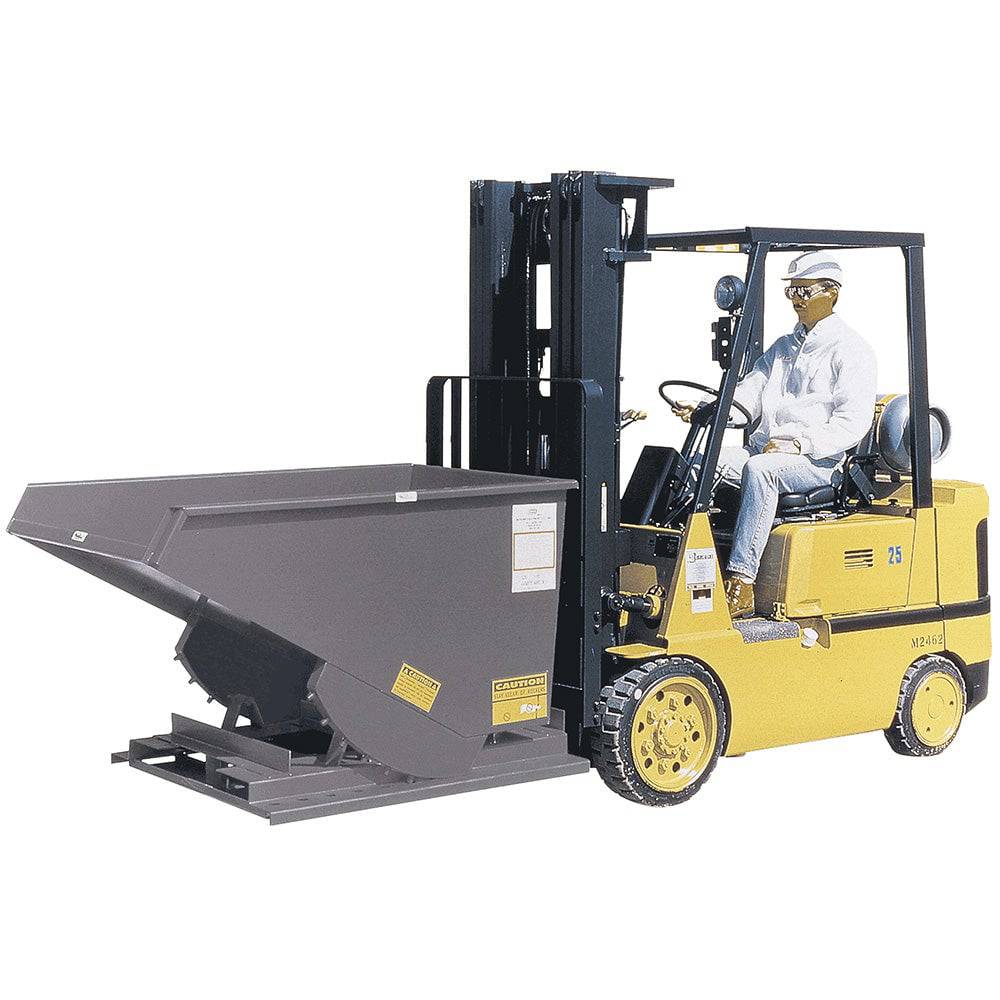Meco-Omaha self-dumping hoppers are essential for efficient material handling in various industries, from construction and demolition to recycling and agriculture. Their robust design handles heavy loads and demanding environments, but like any equipment, regular maintenance is key to maximizing their lifespan and ensuring consistent performance. Neglecting maintenance can lead to premature wear, costly repairs, and even safety hazards. This blog post outlines essential maintenance tips to keep your Meco-Omaha self-dumping hopper in prime condition for years to come.
Why Maintenance Matters:
Before diving into the "how-to," let's emphasize the "why." A well-maintained hopper translates to:
- Extended Lifespan: Regular care significantly prolongs the hopper's life, delaying costly replacements.
- Reduced Downtime: Proactive maintenance minimizes unexpected breakdowns, keeping your operations running smoothly.
- Cost Savings: Preventative maintenance is far more economical than reactive repairs. Addressing small issues early prevents them from becoming major expenses.
- Improved Safety: A well-maintained hopper is a safer hopper, minimizing the risk of accidents caused by equipment failure.
- Increased Efficiency: A properly functioning hopper operates at peak performance, optimizing your material handling processes.
Key Maintenance Practices:
1. Regular Inspections: Catching Problems Early
Consistent inspection is the cornerstone of preventative maintenance. Regularly checking your hopper allows you to identify potential issues before they escalate. Here's what to inspect:
- Visual Checks: Look for dents, cracks, rust, loose connections, or any other signs of damage. Pay close attention to high-stress areas like the dumping mechanism, welds, and support structures.
- Structural Integrity: Assess the overall structural integrity. Look for any signs of deformation, misalignment, or warping.
- Welds: Inspect all welds for cracks or signs of weakness. Welds are crucial for structural integrity.
- Hinges and Pivot Points: Check for wear, lubrication, and proper movement. These are critical for the dumping mechanism.
- Latch Mechanisms: Ensure latches function correctly and lock securely. A faulty latch is a safety hazard.
- Casters or Wheels: Inspect for wear, damage, and proper lubrication. Ensure they rotate freely.
- Base and Supports: Check for stability and any signs of damage.
- Cleanliness: Keep the hopper clean and free of debris. Accumulated material can contribute to corrosion.
2. Lubrication: Keeping Things Moving Smoothly
Proper lubrication reduces friction and wear on moving parts.
- Greasing: Regularly grease all moving parts, including hinges, pivot points, latches, and casters, using the manufacturer's recommended lubricant. Follow the recommended frequency for your specific hopper model and usage.
- Inspection After Lubrication: Operate the hopper after greasing to ensure proper lubricant distribution.
3. Repair and Replacement: Addressing Issues Promptly
Promptly addressing damage prevents further deterioration.
- Minor Repairs: Small dents or scratches can often be repaired with touch-up paint or minor adjustments.
- Major Repairs: For significant damage (structural cracks, bends, severe corrosion), consult a qualified welder or contact Meco-Omaha directly. Avoid DIY repairs for major damage, as this can compromise safety and effectiveness.
-
Replacement Parts: Always use genuine Meco-Omaha replacement parts for compatibility and to maintain the hopper's integrity.

4. Cleaning: Removing Debris and Preventing Corrosion
Regular cleaning prevents corrosion and maintains the hopper's appearance.
- Removing Debris: Remove accumulated material after each use, especially if it's corrosive or sticky.
- Washing: Periodically wash the hopper with water and a mild detergent. Rinse thoroughly and allow it to dry completely.
- Corrosion Prevention: In harsh environments, consider applying a protective coating or sealant to prevent rust.
5. Best Practices for Specific Applications:
- Construction & Demolition: Pay close attention to impact damage and wear from abrasive materials.
- Recycling: Regularly clean to remove sticky or corrosive substances.
- Agriculture: Inspect for damage from fertilizers or other chemicals.
6. Additional Tips for a Longer Hopper Life:
- Operator Training: Train operators on proper use and maintenance, including load limits and safe operating procedures.
- Load Limits: Never exceed the hopper's rated capacity.
- Storage: Store the hopper in a dry, protected area when not in use.
- Documentation: Keep records of inspections, maintenance, and repairs.
- Professional Inspection: For critical applications, consider periodic professional inspections.
Conclusion:
By following these maintenance tips, you can significantly extend the lifespan of your Meco-Omaha self-dumping hopper, ensuring its continued reliable performance and protecting your investment. Proactive maintenance is key to a safe, efficient, and long-lasting piece of equipment.


